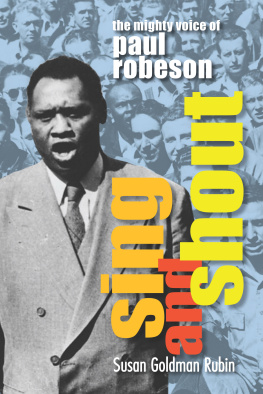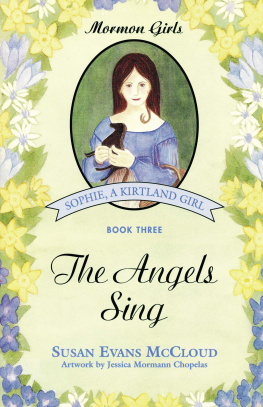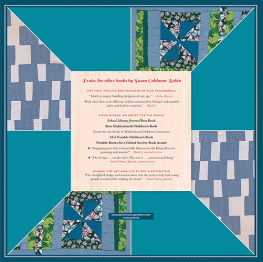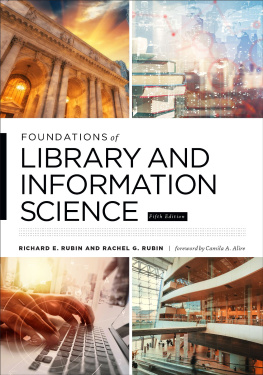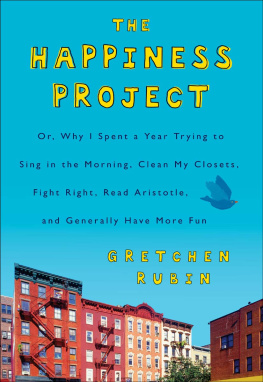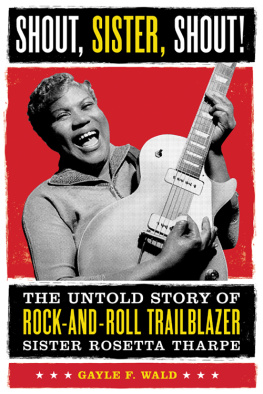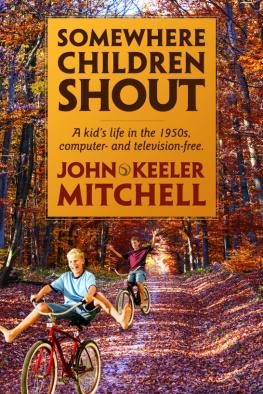Susan Rubin Goldman - Sing and Shout
Here you can read online Susan Rubin Goldman - Sing and Shout full text of the book (entire story) in english for free. Download pdf and epub, get meaning, cover and reviews about this ebook. year: 2020, publisher: Astra Publishing House, genre: Detective and thriller. Description of the work, (preface) as well as reviews are available. Best literature library LitArk.com created for fans of good reading and offers a wide selection of genres:
Romance novel
Science fiction
Adventure
Detective
Science
History
Home and family
Prose
Art
Politics
Computer
Non-fiction
Religion
Business
Children
Humor
Choose a favorite category and find really read worthwhile books. Enjoy immersion in the world of imagination, feel the emotions of the characters or learn something new for yourself, make an fascinating discovery.
- Book:Sing and Shout
- Author:
- Publisher:Astra Publishing House
- Genre:
- Year:2020
- Rating:5 / 5
- Favourites:Add to favourites
- Your mark:
- 100
- 1
- 2
- 3
- 4
- 5
Sing and Shout: summary, description and annotation
We offer to read an annotation, description, summary or preface (depends on what the author of the book "Sing and Shout" wrote himself). If you haven't found the necessary information about the book — write in the comments, we will try to find it.
Sing and Shout — read online for free the complete book (whole text) full work
Below is the text of the book, divided by pages. System saving the place of the last page read, allows you to conveniently read the book "Sing and Shout" online for free, without having to search again every time where you left off. Put a bookmark, and you can go to the page where you finished reading at any time.
Font size:
Interval:
Bookmark:
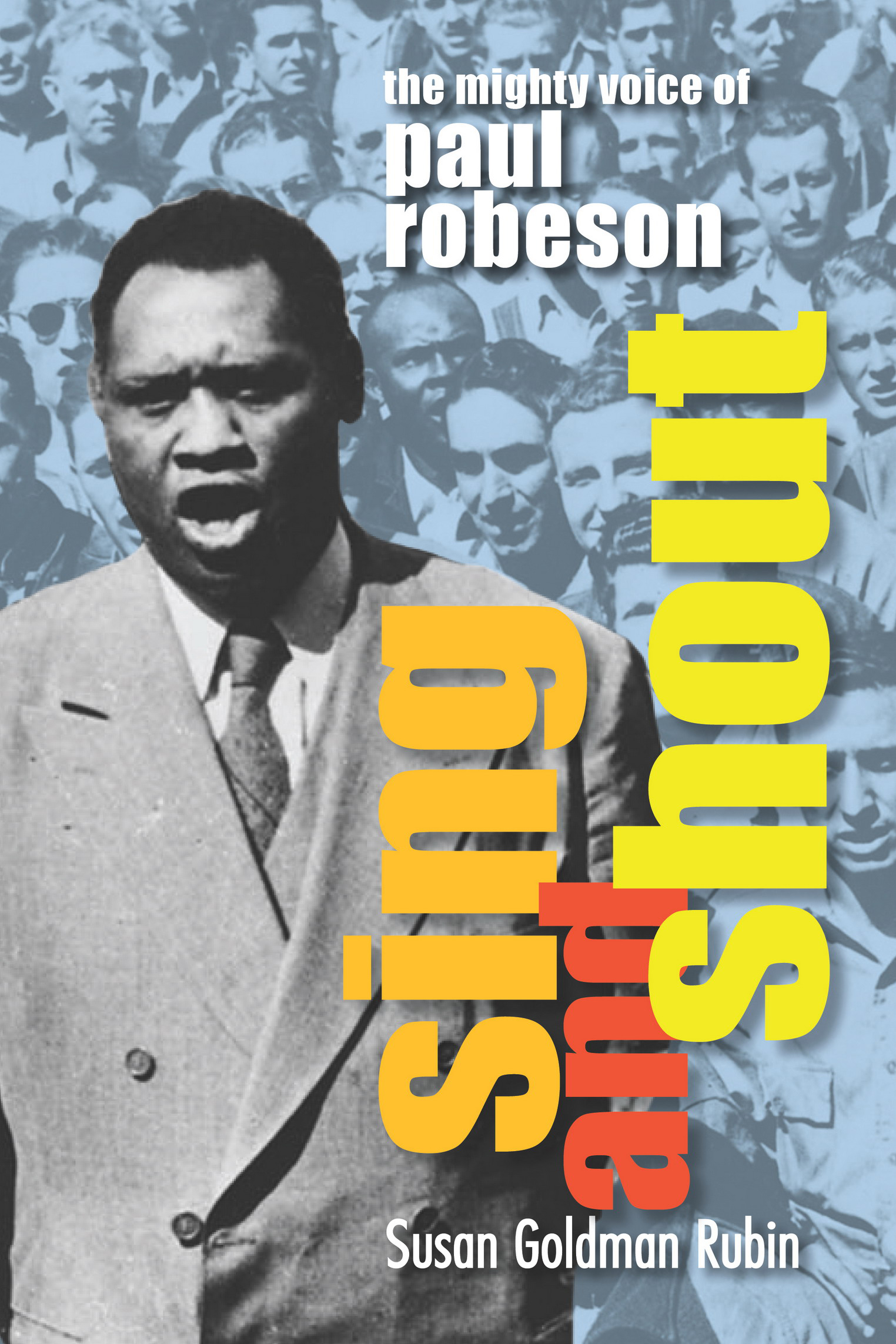
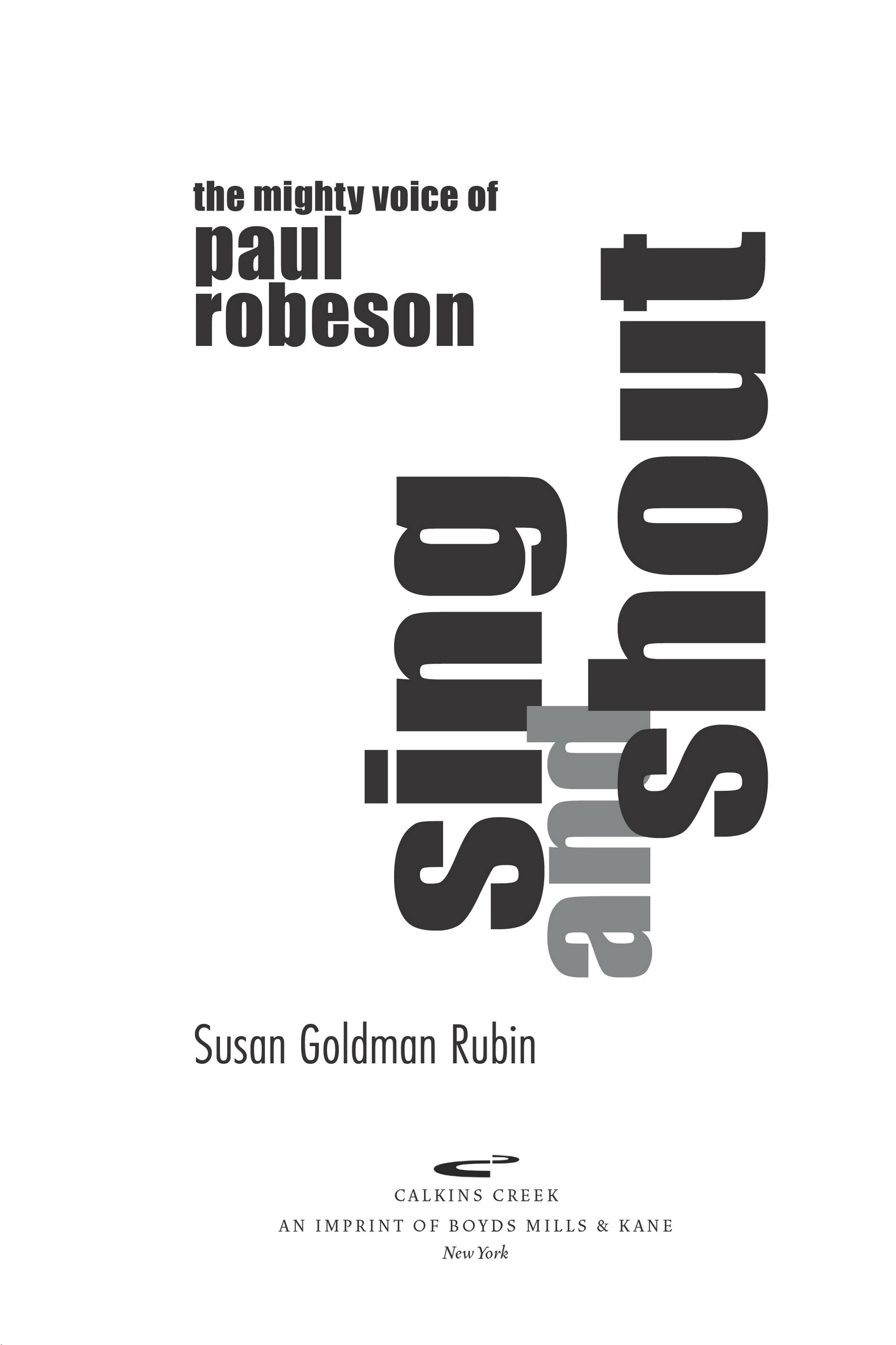
Text copyright 2020 by Susan Goldman Rubin
All rights reserved. Copying or digitizing this book for storage, display, or distribution in any other medium is strictly prohibited.
For information about permission to reproduce selections from this book, please contact .
Calkins Creek
An Imprint of Boyds Mills & Kane
calkinscreekbooks.com
Hardcover ISBN9781629798578
Ebook ISBN9781644720523
Library of Congress Control Number: 2019939633
First edition
Book design by Barbara Grzeslo, adapted for ebook
a_prh_5.5.0_c0_r0
To the memory of Paul Robeson
and the artists and activists who followed
I did not come here to solve anything.
I came here to sing
and for you to sing with me.
Pablo Neruda,
Let the Rail Splitter Awake
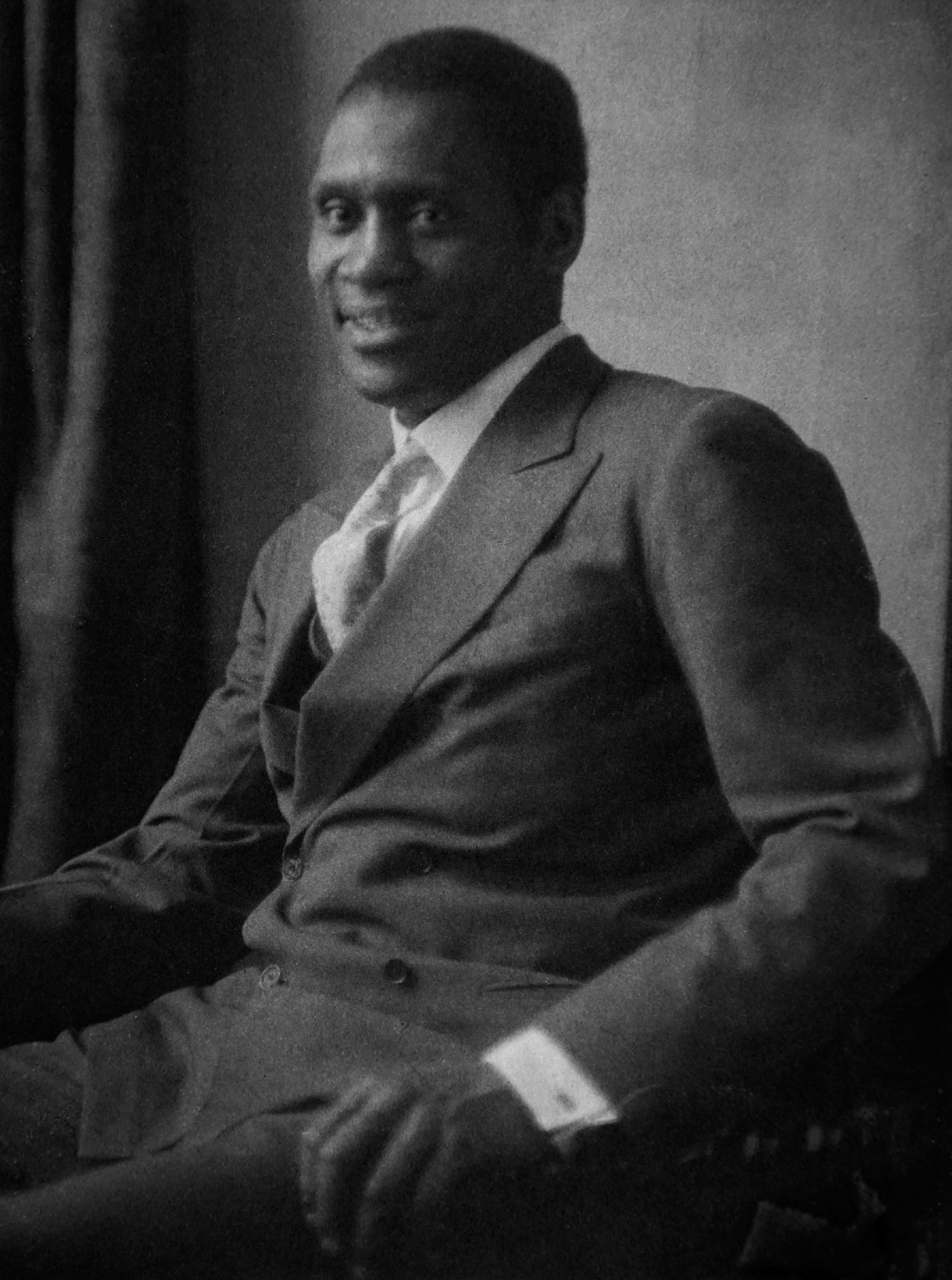
Paul Robeson was an artist and social activist whose voice could not be ignored. Millions of people responded favorably to him and what he stood for. For me, personally, perhaps his most important gift was his mentoring. The only other voice that carried sway in public thought and opinion in the twentieth century championing the cause of those who were racially and economically oppressed was that of Dr. King. They were the two major forces in guiding activists to a courageous place of resistance against segregation. Any journalist, social commentator, or, in this case, author who chooses to write about Paul Robeson and to tell the story of his courage and the sacrifices he made is a welcomed opportunity. I wholeheartedly suggest that Sing and Shout: The Mighty Voice of Paul Robeson be read by all.
Harry Belafonte,
singer, songwriter, activist,
actor, and author
Activism among young people is not a new phenomenon. From the Civil Rights movement of the 1950s and 60s to the Black Lives Matter movement of today, young people have consistently spoken out.
Paul Robeson was a true Renaissance man, a man who achieved success as a scholar, athlete, lawyer, singer, author, and actor, but he was most famous for channeling those talents as an activist. Robeson used his tremendous voice to rail in the first half of the twentieth century. Robeson epitomized the willingness to sacrifice and do what he felt was right, even if it was unpopular or seen as too radical. A great modern-day example is Colin Kaepernick and his brave stand to take a knee during the national anthem, reminding us that not all people are truly free in America. Kaepernicks unequivocal commitment to activism follows a tradition of athlete-activists like Muhammad Ali, Jackie Robinson, and, of course, Paul Robeson.
This book explores the rich history of who Paul Robeson was and how his legacy remains important today.
Its hard to adequately describe or convey how prominent and effective Paul Robeson was. He remains one of the remarkable scholars, activists, and talents of modern times. On a full scholarship, Robeson studied at Rutgers University in New Brunswick, New Jersey. By the time he graduated from the university, Robeson had received an unprecedented twelve major letters in sports, while also giving a stirring commencement address. Continuing his education, he ultimately earned a law degree from Columbia University Law School. When he tried to pursue a career at a big New York City law firm, he faced countless episodes of racism. Disheartened but undeterred, he turned his talents to acting and singing, where he felt accepted and confident enough to speak up for racial justice. With his amazing gift of languages he spoke fifteenRobeson would end up traveling the world, using his fame to break down barriers.
The son of a runaway slave, Robeson encouraged black communities to join together to heal, support, and uplift one another. This notion is relevant today, as black people continue to be targeted, marginalized, and victimized because of the color of their skin. Coalition building is essential to the longevity of the black community. Robeson fought for equitable resources and services that the black community deserved. Even today the black community struggles for racial justice. Young people can model Robesons efforts to sustain equity and justice in economics and voting rights, systems that have been historically designed to disenfranchise people of color.
Acts of racial injustice are longstanding in our country. Robeson knew this was an ongoing challenge, not one to be solved overnight. He once said, the answer to injustice is not to silence the critic but to end the injustice. Robeson recognized the importance of speaking out again and again until the injustice ends.
Everyone should commit to examining the ways Paul Robeson used his many talents to be a voice for change. His work for justice is not done. It will not be done until people of color are no longer marginalized or victimized by racial injustice. As you read this book and reflect on Robesons life and legacy, I challenge you to be more like Robesonto be an active ally. I challenge you to take a stand against injustice and do something to make a positive difference. We all have the ability to be effective social justice change agents. Moving forward, make it an actionable goal to improve the current conditions of society and do what is right to help make our communities more just and inclusive. Lets honor Paul Robesons name and speak up and speak out against all forms of injustice so everyone can live a life that is unapologetic, authentic, and free from oppression; where infinite liberation is reached, and justice always prevails. Robesons legacy is relevant today now more than ever before, so lets do our part to uphold that legacy and be the change we wish to see in the world.
Dr. David E. Jones,
Director of the Paul Robeson
Cultural Center at Rutgers University in New Brunswick, New Jersey
This book uses the term Negro because Paul Robeson did. He proudly owned his identity. In the foreword to his book Here I Stand, the first sentence reads, I am a Negro. He repeated these words throughout his career, in interviews, speeches, and writing, and referred to himself and his people as Negro. Sometimes he added, The origin of the Negro is African, for Robeson took immense pride in his African heritage.
Although he identified the spirituals he sang as Negro spirituals and Negro American folk music, he excitedly researched their African origins. His wife, Eslanda Goode Robeson, wrote a biography of him, Paul Robeson, Negro, published in 1930. In the early twentieth century, the word Negro was preferred as a term of respect. However, this word is not used today. Language for describing race is constantly evolving. Robeson, ahead of his time, used the terms black and Afro-American interchangeably with Negro throughout his life. The terms black and African American became popularized in the 1960s, 70s, and 80s. This biography reflects the period of history in which Robeson lived. With great respect, I have quoted his words and those of his family and friends.
Font size:
Interval:
Bookmark:
Similar books «Sing and Shout»
Look at similar books to Sing and Shout. We have selected literature similar in name and meaning in the hope of providing readers with more options to find new, interesting, not yet read works.
Discussion, reviews of the book Sing and Shout and just readers' own opinions. Leave your comments, write what you think about the work, its meaning or the main characters. Specify what exactly you liked and what you didn't like, and why you think so.

